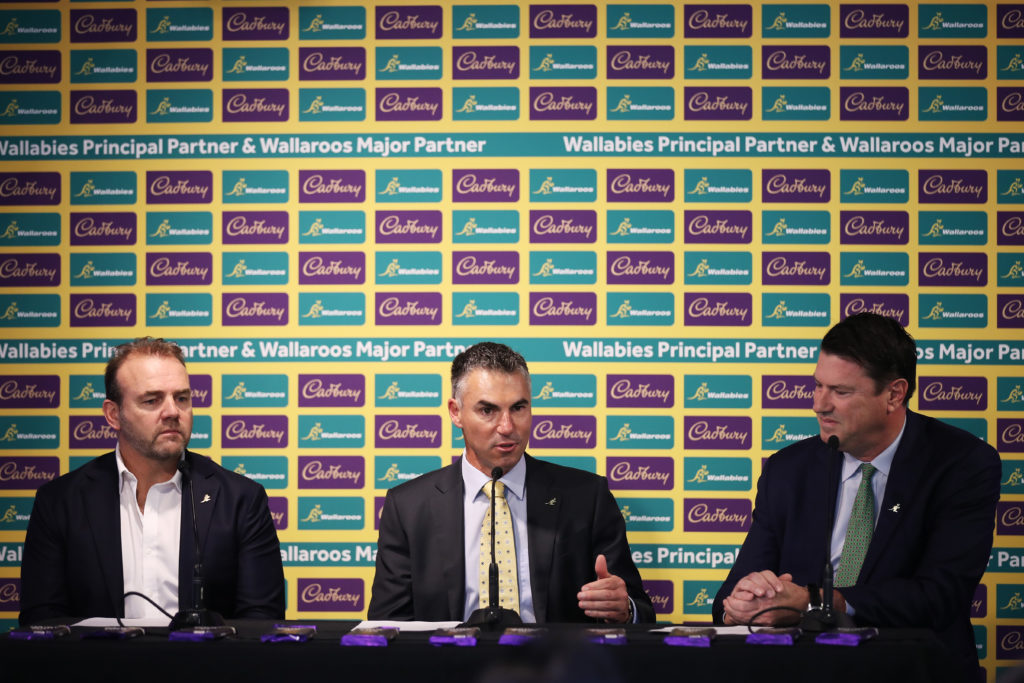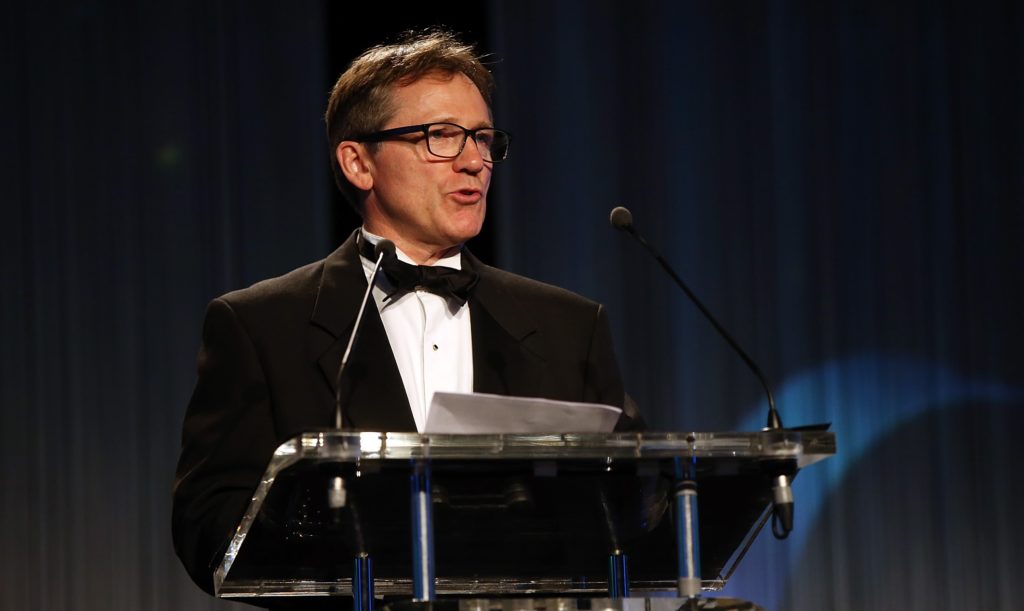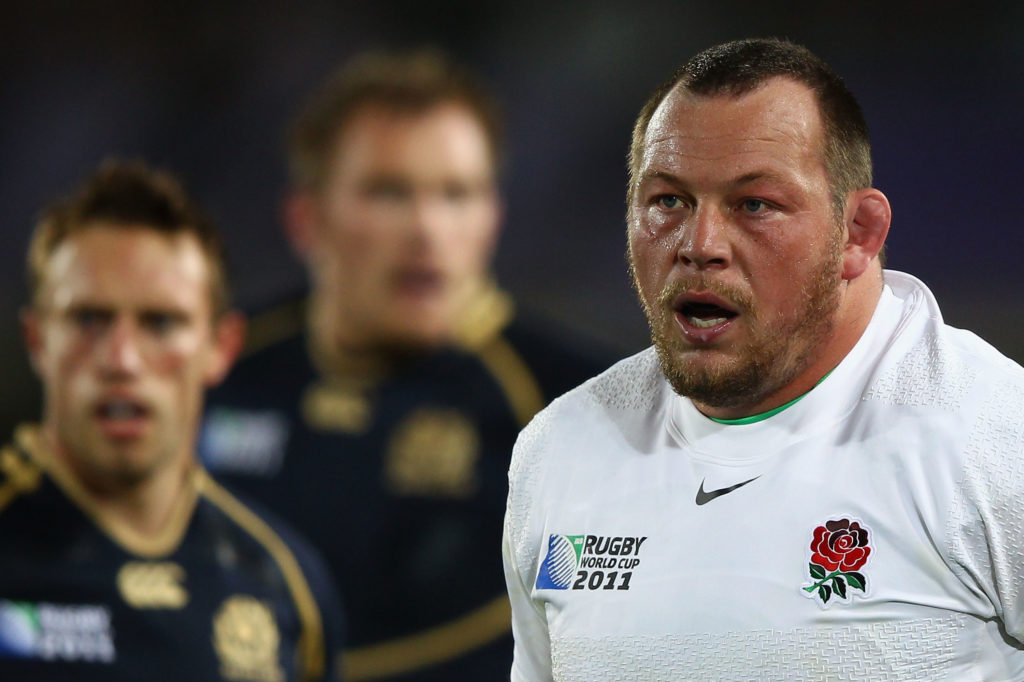Money, money, money. For better or worse, it’s the answer to almost every question you might ask about professional sport these days. And rugby union is no exception.
Why is the season so long with so many matches? Money. Why do some Six Nations Tests kick off on a Friday night? Money. Why is player welfare not the number-one priority when everyone says it is? Money. Why are private equity funds clambering over our sport like a collection of punch-drunk octopuses?
Do you catch the drift?
Money – or more specifically cash – lubricates wheels, opens doors and enables trade. In professional sport, as in so many corners of this uber-commercialised world in which we live, it is oxygen.
But money alone will not sustain an industry. Sustainability comes from growth and profit which repeats over time. In the world of commerce sustained and sustainable profit is the holy grail. And that’s where professional rugby, since its inception in 1995, has almost universally failed to deliver. Yes, the tills have rattled with cash and the broadcasters and other investors have pumped money in but, for myriad reasons, it has never found the commercial zenith.
Could that be about to change?
After securing minority stakes in both Premier Rugby and the Pro14, CVC has now committed more than £700m to rugby in Europe alone. By anyone’s measure, they’re invested in rugby.
Sam Peters
Earlier this year private equity firm CVC Capital Partners purchased a 14.3% stake in the Six Nations (or Six Nations Rugby Limited, who own the rights to the tournament) which will see them pay out approximately £365m to the six member unions over the course of five years. In theory, based on respective reach, this will translate to £95m for the Rugby Football Union, £90m for the Fédération Française de Rugby, £51m for the Welsh Rugby Union, £48m for the Irish Rugby Football Union, £44.5m for Scottish Rugby and £36m for the Federazione Italiana Rugby.
After securing minority stakes in both Premier Rugby and the Pro14 in 2018, CVC has now committed more than £700m to rugby in Europe alone. By anyone’s measure they’re invested in rugby.
And it’s not just in the northern hemisphere where private equity interest is growing at precisely the same time bank interest rates are flatlining.
New Zealand Rugby appear close to finalising a deal which would see them cede a 12.5% stake in its commercial rights to Silver Lake Partners (a California-based technology firm who proudly tell us on their website homepage they have combined assets worth more than £79bn) for just over £300m. The deal – currently delayed by staunch resistance from the New Zealand Rugby Players Association, who say it could erode long-standing Maori traditions, as well as a rival offer tabled last week by the bank Forsyth Barr, whose chairman is former All Black captain David Kirk, to publicly float part of its commercial revenues – comes in direct response to losses of $NZ34m (£17.4m) in 2020 driven by a $NZ55m (£28.1m) drop in revenue.
“The game has to change, and Silver Lake’s capital injection would allow us to reimagine rugby and invest in the areas of the community game that need it most, particularly teenage and women’s rugby, and to create better and more engaging experiences for our fans,” outgoing NZR chairman Brent Impey said recently.

Despite Forsyth Barr’s late interest, and the resistance towards the Silver Lake offer from the NZRPA, which is also chaired by Kirk (did I mention rugby is riddled by conflicts of interest?), the California private equity deal remains a strong favourite to get across the line. The All Blacks brand has a very powerful cachet indeed.
Meanwhile across the Tasman Sea, where the Covid-enforced absence of fans allied to a far more competitive and congested commercial sporting landscape has hit Australian rugby union especially hard, the clamour for private equity money is even more profound.
Recently published figures showed Rugby Australia recorded a net deficit of $AUS27.1m (£14.8m) for 2020 with an overall $AUS45.7m (£25.1m) reduction in revenue being offset by an eye-watering $AUS31.2m (£17.2m) of cost-cutting measures which included a $AUS9.9m (£5.4m) reduction in staff costs and $AUS7.7m (£4.2m) cut in player costs. Rugby Australia chairman Hamish McLennan admitted his organisation had been “shaken to its core” by the losses and for a while seriously considered a return to amateurism.
“We were very nervous,” McLennan said in April. “When I came on board (summer 2020), had we not been able to get cost out of the business and get some certainty into some of our revenue numbers, we openly talked about the game potentially becoming amateur.
“It was a real possibility. It wasn’t just idle talk. But we got through it and there’s light at the end of the tunnel. We knew it was going to be brutal, so it’s not really a surprise. I’m proud of the fact that the team here has kept the game alive and professional.”
Be very clear Silver Lake are not benefactors. They are not going to pump a whole lot of money into New Zealand Rugby without expecting a return.
Former New Zealand Rugby chief executive Richard Moffett
Sources in Australia say the RA will inevitably follow their nearest neighbours in welcoming Silver Lake or another private equity partner with open arms. In truth, they have almost no choice.
The dictionary definition of fire sale is: “a sale of goods remaining after the destruction of commercial premises by fire” or “a sale of goods or assets at a very low price, typically when the seller is facing bankruptcy”. While it may be too strong a term for what’s happening in Australia and New Zealand, the truth is that it isn’t far off. Make no mistake, in return for liquidity, these private equity firms will expect leverage when it comes to how things are run.
“Be very clear Silver Lake are not benefactors,” said former NZR chief executive Richard Moffett. “They are not going to pump a whole lot of money into New Zealand Rugby without expecting a return.”
But what does this all mean for the future of rugby’s players, administrators and fans? One thing is for certain, things are about to change. Private equity funds hunt out profit and then sell to the highest bidder. The question is whether they can leverage enough power to truly shake things up and bring warring national unions, clubs and other historically conflicted stakeholders around the table through the sheer depth of their pockets. If they can, rugby may start to unpick the grotesquely bloated fixture calendar which, allied to the game’s inherent and growing levels of physicality, many, this writer included, hold largely responsible for some of the cases of early onset dementia in former players in their 40s which have inevitably emerged.
The short-term temptation will be to load more onto the top players. But the smart-money play would be to radically strip back rugby’s fixture calendar in the same way NFL franchises have strictly binding caps on the season length and rigorously policed protections around training load for players, player/coach interactions to mitigate against in-the-workplace bullying while freeing up marketing departments to sell fewer games to far bigger audiences.

“The emerging nations and overall growth of world rugby are really important for us. It requires a bit of courage on behalf of the Tier One unions, particularly now, when they are looking to recover some finances,” said former All Black centre and current leading light at the International Rugby Players Board, Conrad Smith.
“All they want is Tier One v Tier One at home to fill the stadiums. We actually don’t think there would be much fan appeal for the same 12 teams playing each other three or four times a year. Our best advice has been from them (CVC). They have listened to us. The idea that less is more, is something they support.”
Media access – one area where Australian and American sport has long been light years ahead of Europe – will also need a radical overhaul. Imagine a sport where top players were routinely fit and in top shape for the biggest games and spoke openly and without fear to the media. No more “one game at a time” nonsense. It couldn’t happen, could it?
To achieve all this, a properly empowered and independently funded players union must exist. There would be a certain irony if a massive injection of private money actually forced a democratisation of the sport and drove the emergence of an independently funded player’s trade union worth its salt. If it doesn’t happen, the legal ramifications for rugby as broken ex-players sue for negligence will make the impact of Covid feel like a drop in the ocean.
“Ultimately fans are not stupid,” said Steve Martin, Global CEO of M&C Saatchi Sport and Entertainment.
“You can’t just keep asking them to watch more and more. As an Ireland fan I don’t want to see Ireland play the All Blacks every year. I want it mixed around a bit. Rugby players are at a different level again to footballers. Careers are so short and the risks of injury and concussion is a massive problem. But if what Conrad Smith is saying is true then I’d be communicating it. That would be a smart investment then to make the sport better for players and the fans and all the different stakeholders in the game would really respect it.”
There’s so much money wasted around the sport, I can never work it out. How does something like the RFU lose so much money? There are obviously leaky buckets.
Steve Martin, global chief executive of M&C Saatchi Sport and Entertainment
From an administration perspective those who have clung on and survived Covid could be set for some boom years at national level. Fans will return, tills will ring and some record Six Nations television audiences during lockdown showed fans’ appetite and demand for rugby remained high, even during a pandemic.
But will private equity firms be prepared to tolerate the sort of amateur practices – on and off the field – which have severely hamstrung rugby’s growth and long-term profitability?
“There’s so much money wasted around the sport, I can never work it out,” Martin added. “Player salaries are not like footballers. There’s a real disjoin. How does something like the RFU lose so much money? Even before Covid. Outside looking in it’s very hard to understand why. There are obviously leaky buckets happening somewhere.
“This is where the professionalism which CVC will bring in will weed out a lot of that wastage. It will probably end up being a very good thing but the issue for me is the communication of it. Maybe that will come further down the track.
In England, the days of benevolent mega-rich individual owners with deep pockets and an extraordinarily high tolerance of sustained losses appear numbered. While we didn’t want to admit it when the trophies were rolling in, Nigel Wray’s relationship with Saracens was always too good to be true and the model of one rich benefactor throwing money at one organisation essentially for vanity reasons simply doesn’t stack up commercially. It is neither a diverse or sustainable solution. And neither was the pre-Covid and pre-private equity status quo.

According to research recently undertaken by former Harlequins CEO Mark Evans, England’s premier rugby clubs have accumulated losses close to £500m since the league’s inception in the late 1990s. We may never see the likes of Wray again. Because if CVC’s relationship with Formula One, which it owned between 2006 and 2017, is a yardstick, rugby may just be about to get serious about professionalism. Every nook and cranny of the sport is likely to be commercialised with huge questions remaining over what that will mea nfor player welfare, among other things.
Across the globe the sport is losing money on an epic scale, with Covid exposing a fact which was already hiding in plain sight. Namely: professional rugby in its current form is not commercially viable or sustainable. Worse than that, the amount of rugby demanded of players has now crossed the threshold of acceptability for the vast majority of people.
Fans, too, are consistently short-changed with often-decrepit facilities, inconsistent scheduling and a watering down of quality as top stars routinely break down mid-season. England Premier Rugby, an increasingly distant organisation, has failed to articulate why CVC’s money is needed and what it can do for the sport.
“Somebody knows something,” Martin added.
“These guys are looking at throwing serious money in and they will look to highly, highly commercialise it. If I’m sitting there as a fan I’d be asking what does that mean for me in terms of access to tickets, access to games, access to everything around the game? You don’t want the Six Nations to become this exclusive, unattainable thing when its magic has been it being open to people from all walks of life.
Rugby union is in desperate need of a serious overhaul. It looks set to get one and there will, inevitably, be casualties along the way.
Sam Peters
“The general anxiety around the deal in New Zealand is about protecting that access at all costs where it becomes this massive out-of-touch commercial vehicle with no genuine emotion and it is all about money, money, money.
“Ultimately nobody really knows what this money is coming in to do other than make a serious profit. And they’re going to ruffle a few feathers to do that. What I am certain about is that you ignore fans at your peril. We saw that with the extraordinary reaction to the Super League in football.”
The football experience, in which Silver Lake is heavily invested, must serve as a salient lesson. As Martin says, “ignore fans at their peril”, but what we can all agree on is that rugby union is desperately in need of a serious overhaul. It looks set to get one and there will, inevitably, be casualties along the way.
But everyone who cares about rugby deserves so much better than its current broken model while committed investors deserve a realistic prospect of sustained returns. They are evidently not achievable under the current set-up. The only way to achieve those sustained returns is to value players and fans alike and not simply see them as a cash vehicle.
But the truth is that money alone simply cannot be the answer to everything. No matter how much some would like to convince us otherwise. Because one day, it can run out.
More stories from Sam Peters
If you’ve enjoyed this article, please share it with friends or on social media. We rely solely on new subscribers to fund high-quality journalism and appreciate you sharing this so we can continue to grow, produce more quality content and support our writers.


Comments
Join free and tell us what you really think!
Sign up for free